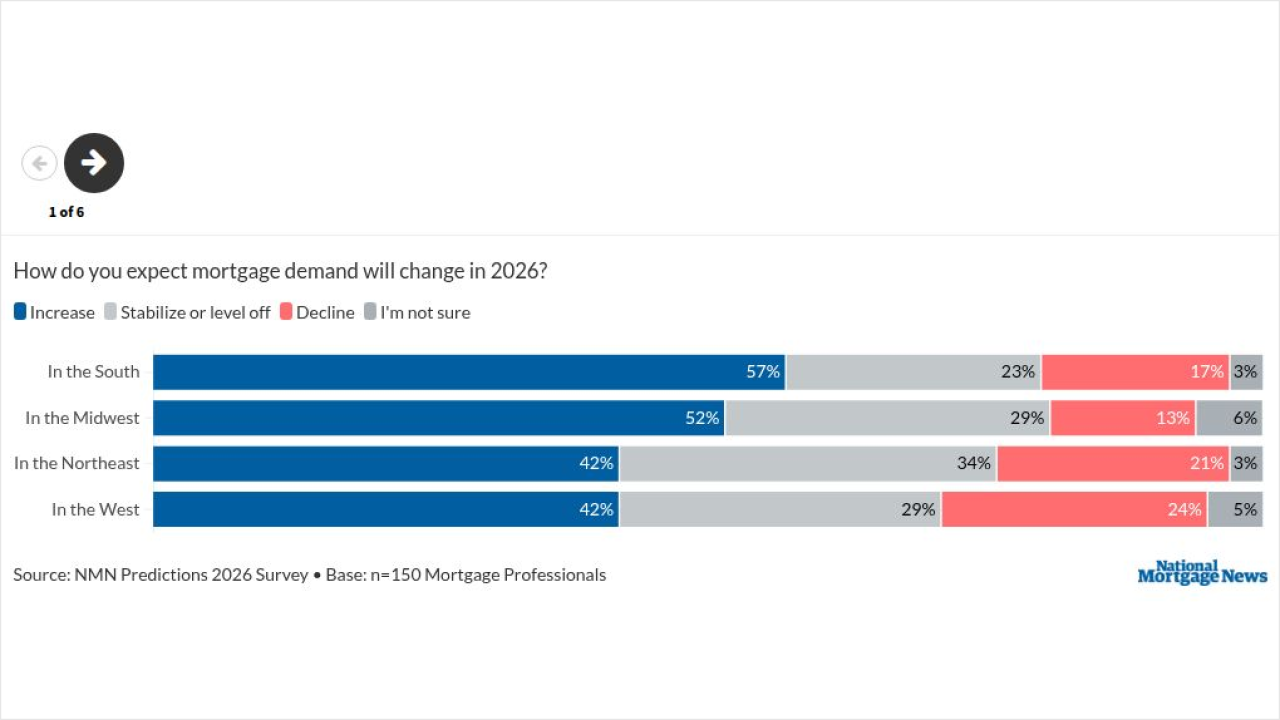The Federal Housing Administration is moving forward with
"By removing these barriers, FHA hopes to incentivize additional community-based mortgage-loan originators, credit unions and others to offer FHA-insured loan products in branch offices they did not previously register," the administration said in an information bulletin Friday.
The members of the
"CHLA applauds FHA for publishing a final rule that eliminates the requirement for lenders to register the branch offices where they conduct FHA Title I or Title II mortgage loan originations," he said. "This will benefit smaller loan originators, who are more likely to originate FHA loans to first-time homebuyers, particularly underserved or low-income borrowers."
While mortgage lenders offering FHA-insured mortgages won't have to register branches under the new rule set to take effect on March 4, there will still be reasons to do so that include listing in an online lender search tool, according to the Department of Housing and Urban Development.
Also, Neighborhood Watch data that the FHA has used to measure how mortgage companies' default rates compared to those generally seen in the area will remain available for lenders that have registered branches.
For those that don't, "FHA expects mortgagees to conduct similar analysis, and to continue tracking the performance of specific branches using their own data if necessary," the administration wrote in a rule published Friday in the Federal Register.
The FHA will continue to rely on other types of oversight where branch registrations are no longer available after the new rule takes effect.
"Most FHA monitoring processes already focus on mortgagee-level data based on a variety of geographic areas," the Department of Urban Development said in the rule. "For example, FHA's current Credit Watch Termination process focuses on properties underwritten by each direct endorsement mortgagee in a particular field office."
HUD can withdraw a lender's direct endorsement if the default and claim rates for loans in the past 24 months is greater than 200% of that seen in the geographic region served by the local field office and exceeds the national equivalent.
The ongoing presence of both HUD field offices and state supervision made the department comfortable that it could remove mandatory branch registration without unduly diminishing oversight.
"Lenders and mortgagees can only exercise the authority to conduct FHA business from those branch office locations in which they fully comply with state licensing and approval requirements for origination, underwriting and/or servicing," HUD said. "Therefore, the current requirement to also register branch offices with HUD has become redundant."
Some states that require branch licensing provided some flexibility to accommodate remote work during the pandemic.
The current state of those rules and what lenders pay to license the branch of a lender varies by jurisdiction, according to information from the Conference of State Bank Supervisors' Nationwide Multistate Licensing System resource center.



